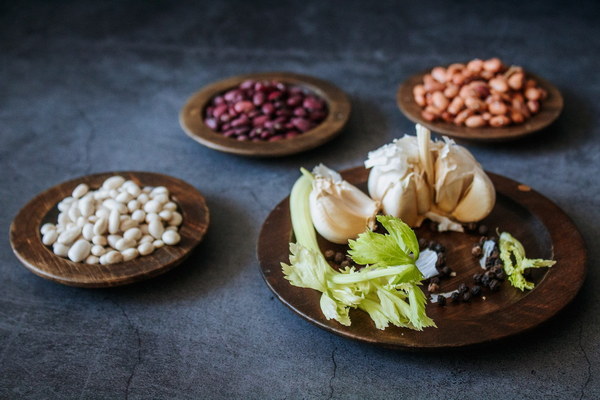Revitalize Your Health with Traditional Chinese Medicine A Guide to expectorant invigorating spleen and kidney and nourishing lung herbal preparations
In the vast realm of Traditional Chinese Medicine (TCM), there exists a treasure trove of herbal preparations designed to address a multitude of health concerns. One such category encompasses expectorant, invigorating spleen, kidney, and nourishing lung remedies. These natural remedies have been passed down through generations and are known for their efficacy in treating various respiratory and digestive issues. This article aims to provide an in-depth look into these traditional Chinese medicines and their benefits.
Understanding the Principles of TCM

Traditional Chinese Medicine is based on the concept of Yin and Yang, the belief that the body must maintain a balance between these two opposing forces to achieve and maintain good health. TCM focuses on treating the root cause of illness, rather than merely alleviating symptoms. The four main principles of TCM are:
1. Yin and Yang Balance: Achieving balance between the body's internal and external environments.
2. Five Elements: The belief that the body is made up of five elements (wood, fire, earth, metal, and water) that interact with each other to maintain health.
3. Qi: The vital life force that flows through the body, and is essential for maintaining health.
4. Zang-Fu: The concept that the internal organs (zang-fu) are the foundation of the body's health.
Expectorant, Invigorating Spleen, Kidney, and Nourishing Lung Herbs
The following are some of the most common herbs used in TCM to address expectorant, invigorating spleen, kidney, and nourishing lung concerns:
1. Gan Cao (Licorice Root): This herb is known for its sweet, soothing properties and is often used to harmonize other herbs in a formula.
2. Bai Zi Ren (Biota Seeds): A potent expectorant and antitussive herb that helps alleviate cough and phlegm.
3. Fu Ling (Poria): This mushroom-like herb is excellent for invigorating the spleen, draining dampness, and nourishing the lungs.
4. He Huan Pi (Mimosa Tree Bark): This herb is known for its expectorant, antitussive, and analgesic properties.
5. Fu Zi (Aconitum Root): A powerful herb that warms the kidneys and lungs, and is used to treat chronic respiratory conditions.
6. Ren Shen (Ginseng): A well-known adaptogen that strengthens the immune system, invigorates the spleen, and nourishes the lungs.
7. Huang Qi (Astragalus): This herb supports the immune system and helps invigorate the spleen and lungs.
Formulas and Their Benefits
TCM formulas are designed to address specific health concerns by combining different herbs in a synergistic manner. Here are some popular formulas that target expectorant, invigorating spleen, kidney, and nourishing lung issues:
1. Er Chen Tang: This formula, which includes Chen Pi (Tangerine Peel) and Fu Ling, is excellent for invigorating the spleen and draining dampness.
2. Si Miao San: Composed of Bai Zi Ren, Fu Ling, and other herbs, this formula helps alleviate cough and phlegm while invigorating the spleen.
3. Bao He Wan: A blend of Gan Cao, Ren Shen, and other herbs, this formula is known for invigorating the spleen and nourishing the lungs.
4. Xiao Chai Hu Tang: This formula, which includes Bai Zi Ren and other herbs, helps invigorate the spleen, drain dampness, and nourish the lungs.
5. Lung-Invigorating Formula: A combination of various herbs, such as Ren Shen, Huang Qi, and Fu Zi, this formula is designed to invigorate the lungs and strengthen the immune system.
Conclusion
Traditional Chinese Medicine offers a wealth of natural remedies for expectorant, invigorating spleen, kidney, and nourishing lung concerns. By understanding the principles of TCM and the benefits of various herbs and formulas, you can make informed decisions about incorporating these natural remedies into your health regimen. Always consult with a qualified TCM practitioner before starting any new treatment to ensure it is appropriate for your specific needs.









